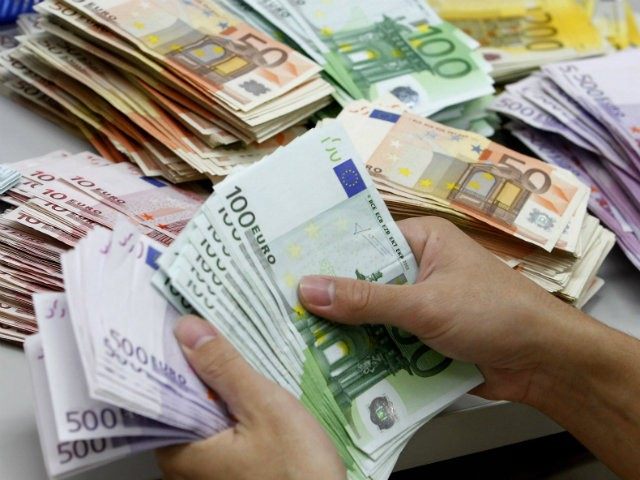The European Constitutional Court of Justice ruled the European Central Bank (ECB) has unlimited authority to massively inflate the euro. The Swiss National Bank (SNB) was forced to drop its fixed exchange rate for the nation’s “franc” currency.
Over the next few minutes, the Swiss franc sky-rocketed up almost 35 percent, and Swiss stocks plunged by -13.3 percent. By the end of trading, the devalued euro cut its loss to 13 percent, and Swiss stocks ended down -8.7 percent.
Switzerland is a member of the European Union but retained its own currency and central bank. But with 18 members of the EU using the euro as their currency and facing collapsing competitiveness and deflation, the European Union court essentially approved the right for the ECB to massively devalue their currency.
The devaluation of the “Eurozone” makes imports much more expensive and exports much more competitive. Morgan Stanley analysts Huw Van Steenis and Bruce Hamilton expect the Swiss franc’s appreciation to wipe out 21-24 percent of the earnings for some major Swiss companies.
The last time such an event took place in Europe was “Black Wednesday,” September 16, 1992, when the Bank of England was forced to devalue the “pound” by 15 percent against the German deutschemark. Although the fall in the British pound was good for export competitiveness, the resulting inflation spike hammered the wages of British workers.
The devaluation of the euro goosed Germany’s stocks up +2.2 percent; French stocks up +2.37 percent; Italian stocks up +2.36 percent; Spanish stocks up +1.39 percent to 9982.5. As the ultimate inflation hedge, gold traded in euros jumped +4.36 percent.
The ECB has been pursuing policies to devalue the euro against all currencies since May of 2014. The euro fell 1.36 percent on Thursday against the U.S. and is down -13.2 percent since May. The size of the ECB policy-driven devaluation has artificially overvalued the dollar against the euro.
The euro devaluation is beginning to slow U.S. exports, especially for technology-intensive capital goods and software. If the ECB continues to devalue the euro, and the U.S. economy slows, there will be calls from Congress for retaliatory tariffs.
Predatory devaluations during the 1920s resulted in a worldwide trade war between the U.S. and European nations. The eventual result was the Great Depression.

COMMENTS
Please let us know if you're having issues with commenting.